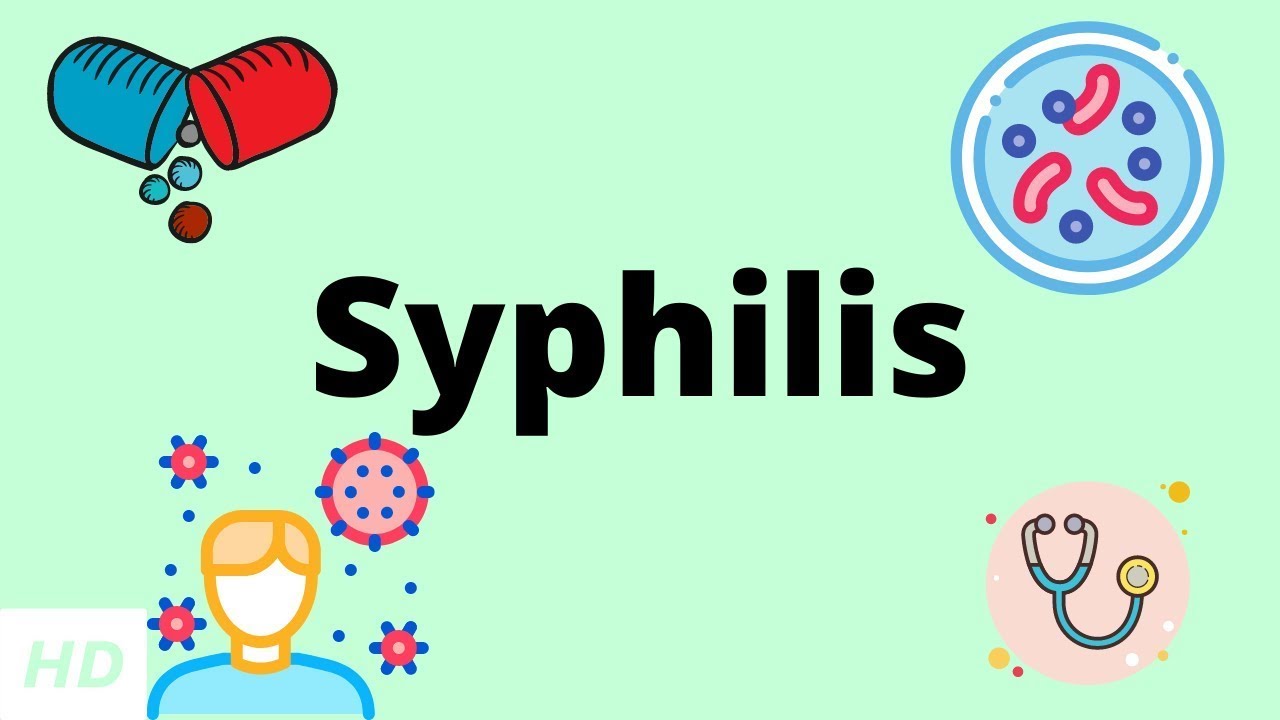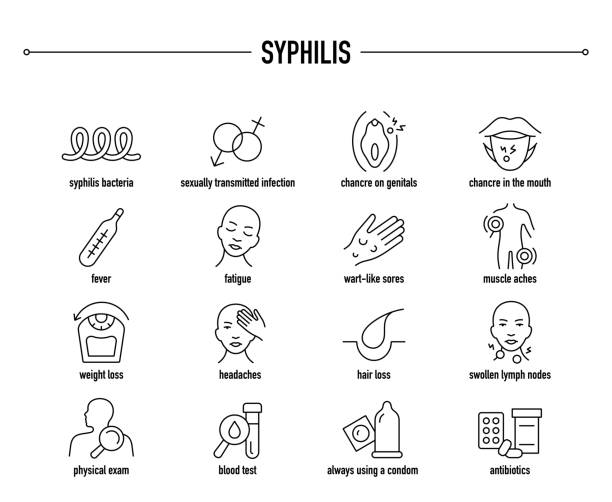Syphilis, also called the "notable imitator," is a sexually transmitted infection (STI) caused by the bacterium Treponema pallidum. This infection is seen mostly from the ancient days having a series of signs and symptoms. It is a very complicated and dangerous sexually transmitted infection. Here are the types, causes, symptoms, and treatments for syphilis.
Types of syphilis:
1) Congenital syphilis:
 It is mostly seen in pregnant women because syphilis which is left untreated leads to congenital syphilis in them. This results in the premature birth of a baby and it may also get transferred to the baby, the baby having low weight, and even death of the baby may be seen if left untreated.
It is mostly seen in pregnant women because syphilis which is left untreated leads to congenital syphilis in them. This results in the premature birth of a baby and it may also get transferred to the baby, the baby having low weight, and even death of the baby may be seen if left untreated.
2) Gummatous syphilis:
When syphilis is detected late it leads to gummatous syphilis which is characterized by the presence of tumors on certain parts of the body such as skin, bones liver, etc.
3) Cardiovascular syphilis:
Syphilis also attacks heart health that is characterized by inflammation of the blood vessels, weakening the immune system and artery walls and even blood leakage may also be seen from the artery valve.
4) Neurosyphilis:
Neurosyphilis is syphilis that affects the nervous system of the body causes inflammation of brain memberanes, and the spinal cord, and damages the brain nerves. Neurosyphilis is also seen in most individuals experiencing many complications by leaving it untreated. Soon after you experience any disturbance in the nervous system get yourself checked by a medical professional and follow the treatment procedure accordingly.
Transmission:
Syphilis may be transmitted through sexual contact, which may be vaginal, anal, or oral sex. Sometimes It can also be transmitted from mother to child during pregnancy and childbirth, which results in congenital syphilis. A bacterium that enters into the frame through mucous membranes or breaks within the skin, which leads to infection in the whole body.
Symptoms & Stages:
Syphilis progresses by several ranges, each stage has its own set of signs and symptoms which include:
Primary Stage:
 The first sign of syphilis is most probably a painless sore referred to as a chancre, which is seen in the area of infection (genitals, rectum, or mouth) 10 to 90 days after exposure.
The first sign of syphilis is most probably a painless sore referred to as a chancre, which is seen in the area of infection (genitals, rectum, or mouth) 10 to 90 days after exposure.
2. Chancres can also heal on their own, which leads to people's mistakes, and considering the infection has been resolved but the infection isn't completely cured if the chancre has disappeared, you need to confirm after a perfect visit from your doctor.
Secondary Stage:
If left untreated for a longer time, syphilis progresses to the secondary stage and is characterized by rashes that can be seen on places such as the arms of the hands, and soles of the foot, or different parts of the body. Additionally, symptoms may also include fever, fatigue, sore throat, swollen lymph nodes, and patchy hair loss.
Latent Stage:
After the secondary stage, syphilis enters to latent level in which the signs and symptoms are no longer seen or observed i.e., they disappear but the infection might be present inside the body. Latent syphilis may last for many years without showing any signs and symptoms, but it lasts transmissible.
Tertiary Stage:
In such cases, syphilis may lead to the tertiary level, which may remain for years or even many long years from the time of the primary stage. Tertiary syphilis leads to serious complications affecting other organs such as the heart, brain, nerves, eyes, and other parts of the body. Common effects include cardiovascular syphilis, neurosyphilis, and gummatous syphilis.
Diagnosis:
Diagnosing syphilis can include a multiple combination of medical history, physical examination, laboratory tests, and screening for different STIs. Doctors can also carry out a blood test and urine test to detect the presence of antibodies towards the bacteria Treponema pallidum. In people where signs and symptoms are not seen, samples from sores or lesions can be taken for examination below a microscope or through molecular methods to detect the presence of infection.
Treatment:
Generally, syphilis is curable with a few antibiotics, normally penicillin. The type and period of the medicine depend on the stage and severity of syphilis and the body or health condition of the person who may have any type of allergies or different medical conditions. Early diagnosis and treatment are important to prevent complications and reduce the danger of transmission to others. It's essential to complete the total prescription of antibiotics as prescribed by the doctor, even if signs and symptoms disappear you need to take the treatment up to the confirmation of the doctor because sometimes the infections remain asymptomatic i.e., it does not show any symptoms.
Prevention:
 Prevention of syphilis involves having safe intercourse, containing regular and correct condom use, not having multiple sexual partners, and having open communication with sexual partners about STI testing and its severity. Regular tests for syphilis and different STIs are usually recommended for sexually active people, particularly people with multiple sexual partners or people with a history of STIs. Pregnant women should also undergo syphilis tests early in pregnancy to save them from congenital syphilis.
Prevention of syphilis involves having safe intercourse, containing regular and correct condom use, not having multiple sexual partners, and having open communication with sexual partners about STI testing and its severity. Regular tests for syphilis and different STIs are usually recommended for sexually active people, particularly people with multiple sexual partners or people with a history of STIs. Pregnant women should also undergo syphilis tests early in pregnancy to save them from congenital syphilis.
Sexually transmitted infections became more spreading in people that may be due to multiple reasons but early detection and proper preventive and treatment procedures need to be followed to keep yourself far from the increased risk of other health complications such as the increased risk of HIV transmission, and other types of syphilis as congenital syphilis, gummatous syphilis etc.
